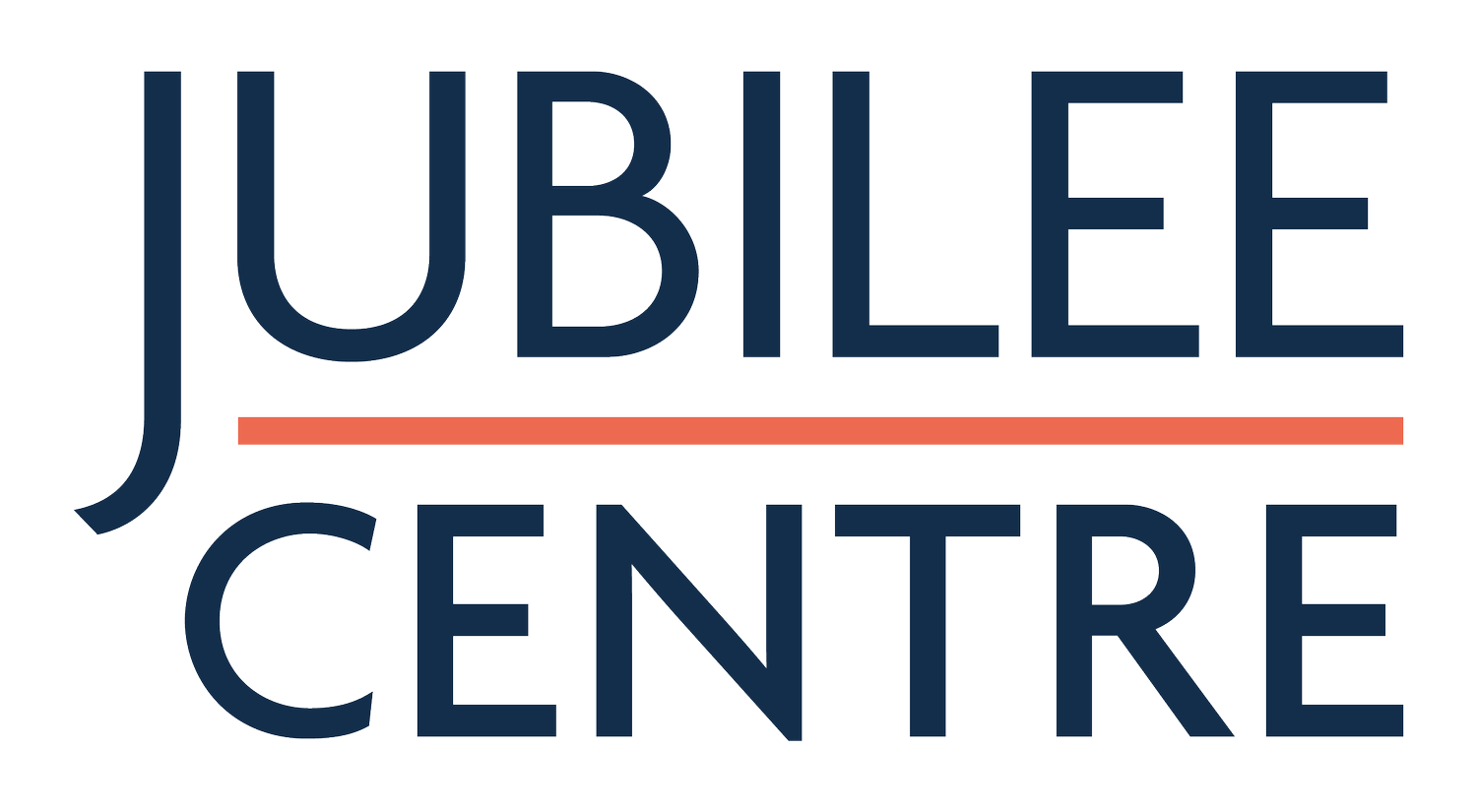
The Idolatry of Artificial Intelligence: Why AI Developers are talking about Old Testament Idols
Silicon Valley’s growing talk of “Moloch” reveals a deeper anxiety: artificial intelligence is becoming an impersonal force demanding sacrifice without consent. Unlike past technologies, AI appears to act with a life of its own, mirroring human desires while lacking moral agency. The danger is not demonic possession, but misplaced trust, treating a powerful tool as a relational substitute.

Christian View on Environmental Responsibility
The writer, Hadden Turner, strongly believes one of the greatest needs for the modern world is for evangelical Christians to rediscover their biblical environmental responsibilities and thus retake the helm of environmental action as stewards of God’s very good earth. To this end, we need an articulation of a set of guiding environmental principles that are biblically and ecologically based.

Hopeful Witness in an Age of Pessimism
In an age of doomscrolling and despair, we need a deeper story. History is not only a graveyard of disasters; it is a reservoir of hope. From Equiano to Douglass, Black Christian reformers bore prophetic witness against injustice and called Britain to live up to its own faith. Their legacy reminds us that courage can still change the world.

News Addiction: Why I Have Stopped Reading the News
Like many people, I am addicted to the news. But stepping away has not made me disengaged; it has made me more attentive. Constant news feeds promise awareness yet produce passivity, overwhelming the mind and dulling our moral senses. Saturation breeds anxiety, manipulation, and exhaustion, leaving us informed, but less capable of truly engaging with the world.

Freedom of Expression: A Christian Perspective on a Distorted Right
Freedom of expression in Europe is praised as a cornerstone of democracy, yet it is often applied unevenly—especially when Christians speak clearly about doctrine and moral truth. Scripture frames speech less as a personal entitlement and more as a divine calling to testify with truth and love. In a hostile climate, Christian witness may require courage and costly faithfulness.

Our Daily Bread
Gail’s Bakery, once known for generosity and craft, now reflects the pressures of rapid scaling, workers labour under strict surveillance, harsh practices, and efficiency-driven demands. In contrast, Scripture offers a different vision through Boaz, who treats the vulnerable with dignity and abundance. His example challenges today’s economy, urging businesses and believers to prioritise care, community, and human flourishing over profit alone.

Neighbours in Arms
Extremist violence in Africa continues to rise, driven less by ideology than by governance failures, exclusion, and poverty. This blog analyses the roots of terrorism, critiques Western interventions, and highlights community-based peacebuilding as a more sustainable path. Drawing on biblical principles of justice and compassion, it calls for partnerships rooted in trust, equality, and local ownership.

Living Virtuously with AI Chatbots
If you’re concerned about the uncritical rise of AI, Jeremy Peckham’s Cambridge Paper: “Living Virtuously with AI Chatbots” is a essential reading. He explores how AI challenges our virtue, relationality, and humanity, warning against emotional dependence on digital companions. Peckham urges Christians to cultivate good habits, protect relationships, and ensure technology serves us, not replaces us.

When Will Europe Ever Learn to Connect the Dots?
Europe’s leaders still fail to connect the dots between their foreign policies and the migration crises they decry. From Libya to Iran, Turkey to Syria, short-term deals and profit-driven diplomacy deepen the very causes of displacement. Until Europe adopts a relational approach that recognises human dignity and interdependence, its policies will keep fuelling the chaos they claim to solve.

Generational Discontent
Gen Z faces rising loneliness, fewer friendships, and a shrinking zest for life. Remote work, while comfortable, often intensifies disconnection, erodes discipline, and detaches us from embodied community. Digital work promises flexibility but risks leaving young people unfulfilled. The Church can offer an alternative: rhythms of rest, embodied worship, and real human presence that nurture meaning and belonging in a disconnected world.

Biblical Border Policy
The Bible calls us to love the foreigner, not as a vague ideal, but with concrete action. Ancient Israel’s laws treated migrants as equal under the law, safeguarded their welfare, and invited them into national life. These principles still challenge us today: to build border policies rooted in justice, compassion, and the dignity of every person.

The New Hypocrisy
In a culture quick to expose religious hypocrisy, we must also reckon with the double standards in media and popular morality. Rev Dr Ian Stackhouse challenges the seductive veneer of progress and freedom, exposing a new, secular hypocrisy, one that punishes missteps while celebrating the very behaviours it condemns. What happens when a society forgets how to blush?

The False Religion of Climate Alarmism
Climate alarmism is often spoken of in religious terms and yet its Christian proponents have frequently sided publicly with alarmists while excoriating brothers and sisters who voice their doubts and concerns. The stakes surrounding this debate could not be higher. On the one hand, climate apocalypse is forecast unless the rise in atmospheric CO2 levels is abated. On the other, the vast costs and technical impossibility of decarbonising energy usage are becoming increasing apparent.
To help with discernment in this area, the paper outlines the contours of the religious worldview of climate alarmism and the various religious facets that it manifests (e.g. moral purity, indulgences, heretics etc.). It then describes the ‘fruit’ of this religion to assess its validity (e.g. failed prophecies, hypocrisy, false apocalypticism) and compares it to a biblical worldview regarding creation, the climate and the future. It concludes that climate alarmism is a false religious expression and should not distract from the Church’s gospel mission.
An appendix describes the ten preconditions that all must be met before one can conclude that stewardship of the Earth entails the pursuit of ‘net zero’ carbon emissions. All ten are contested. Christians should not equate creation care with advocacy of ‘Net Zero’. In many ways they are diametrically opposed.

Marriage and a Stable Society
Marriage in Britain is in steep decline, especially among the less affluent, contributing to rising loneliness, fatherlessness, and social instability. As marriage rates fall, the feedback loop of its disappearance strengthens. Reviving marriage requires bold leadership, cultural renewal, and a biblical vision that sees marriage as both a social good and a reflection of God's covenantal love.

Douglas Murray’s War on Terror: Neo-cons and the Israel-Gaza Conflict
Douglas Murray’s refusal to acknowledge the grotesque scale of suffering in Gaza undermines his otherwise sharp analysis. His support for Israel veers into moral complicity when it ignores the disproportionate force used. True solidarity, as Rabbi Jonathan Sacks reminded us, demands self-criticism, not blind allegiance. War may have its time—but so does justice, restraint, and responsibility.

Christian Nationalism: In God we trust?
Christian Nationalism emphasises a national, Christian identity above all others, claiming Christianity as the defining feature of the nation. It places trust in political power over God. Though not uniquely American, its most visible expression is in the U.S., where rhetoric around Christianity and national identity has gained traction among leaders and citizens alike.

Adolescence Is Thoughtful Television, Not Thoughtful Policy
Adolescence is compelling fiction, not sound policy. While it highlights real concerns about male alienation and online radicalisation, its narrative lacks the nuance needed to shape law. The Church, uniquely equipped with a vision of godly masculinity and relational depth, must step in—not with sweeping regulations, but with purpose, discipleship, and a hope strong enough to transform lives.

Addressing Abuse within Evangelical Churches and Organisations
At the start of 2020, I attended Gateway Church under Pastor Robert Morris, unaware of his abusive past. His recent conviction leaves us questioning how leaders like him escape accountability. Many churches face similar scandals, highlighting the urgent need for reform, transparency, and justice in Christian leadership structures.

Christians & Wars
In Reflections on War (1933), Simone Weil wrote, “the present situation and the state of mind it gives rise to, once again bring the problem of war back on the agenda.” Christians cannot remain indifferent to global conflicts. The Just War tradition seeks to restrain violence, ensuring force is used only as a last resort to restore peace, guided by justice and prudence.

The Alcohol Problem
Alcohol is deeply embedded in society, fueling business deals and social interactions. However, its harms are undeniable—contributing to violent crime, domestic abuse, and rising deaths. The Bible permits alcohol but warns against drunkenness, advocating temperance. Policies should encourage moderation by promoting public awareness, and enforcing existing laws to curb excessive drinking in social spaces.

